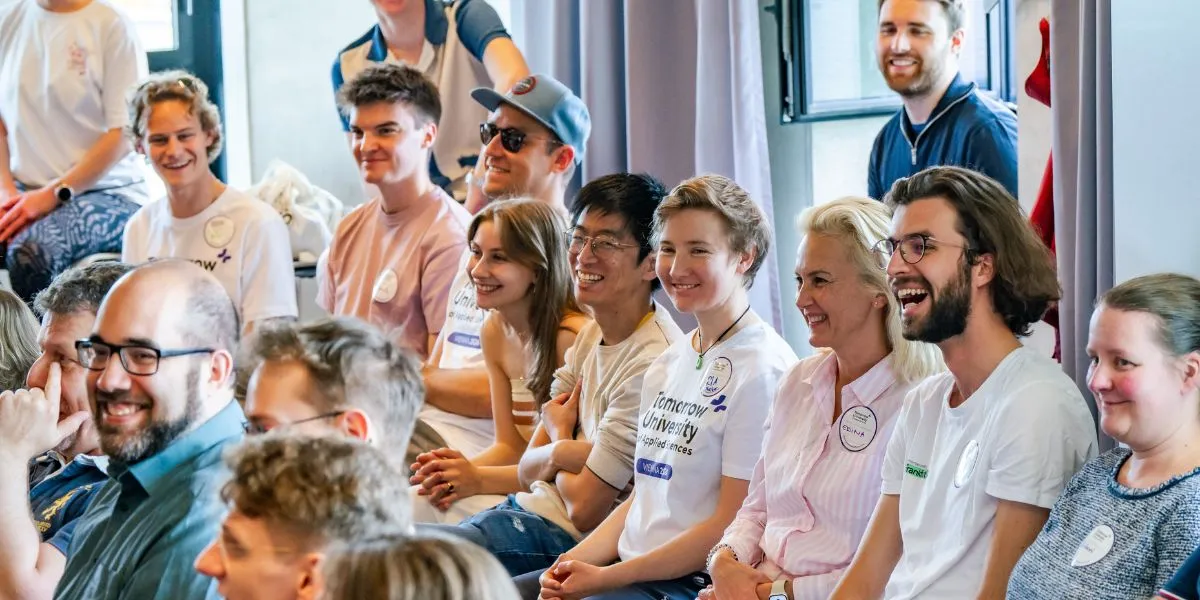What It Means to Have a Growth Mindset
Failure isn’t the opposite of success—it’s part of it. In this post, explore what it means to have a growth mindset and how Tomorrow University cultivates resilience, curiosity, and lifelong learning in every student’s journey.
.webp)
Using a growth mindset to achieve success.
Learn how a growth mindset can help you reach your goals.
For the longest time, we have used grades to measure the success of learning. Grades open or close doors for us. They decide whether we can study at a highly-ranked university, whether we can enter competitive fields like medicine or law, and whether we continue on to graduate school. The importance of grades often goes beyond their educational and professional implications. Many students go as far as deriving their self-worth from their grades.
To be sure, assessing someone’s progress in a given field can be extremely beneficial to learners. It can be an important reference point for knowing which learning target to spend more time and effort on. However, more often than not, a grade feels like a final verdict on a person’s abilities. It can misguide us to think that we are not capable of developing beyond our current limits. It can even discourage us from trying harder. This is what Carol Dweck, the best-selling author, and Stanford psychologist, studied different learning behaviors called the “fixed mindset”. It leaves little room for change or growth. People who believe that their intelligence is predetermined and that they “just don’t have it” also believe that there is not much they can do to enhance their learning process. If worse comes to worst, they even stop trying.
This is in stark contrast to a “growth mindset”. People with a growth mindset understand that putting in time and effort can dramatically improve their learning experience and progress. They are not discouraged by bad grades, unfavorable feedback, or someone’s negative opinion. They simply see it as a point of reference to try even harder. In the words of Carol Dweck, who invented the theory around the growth mindset: “In a growth mindset, people believe that their most basic abilities can be developed through dedication and hard work — brains and talent are just the starting point. This view creates a love of learning and a resilience that is essential for great accomplishment.”
For those of us who suffered through bad grades, whose confidence has been shaken by destructive feedback, and who have learned to believe that our fate is predetermined, there is good news: a growth mindset can be acquired. Here are some tips on where to start:
Great results are hard to achieve and take a lot of effort
They are not handed down for free. This might seem obvious, but many of us simply look at the achievements of others without understanding the focus and dedication that provided the basis for success. Looking at just the result blurs our vision. Instead, ask what the person did to reach her goal. Investigate how long she needed, how hard she worked, and how many times she failed. Try to take that as an inspiration for achieving your own goals.
Adopt the role of a lifelong learner
This requires us to not shy away from asking simple questions (they are actually the best). Being curious, trying to find the root of a problem, and looking for new ways to tackle an issue — are all elements of a great learning path.
Embrace the “not yet” approach
Don’t label an unsatisfactory grade or feedback as a failure. Instead, understand that you haven’t mastered it “yet”. It is important to cut yourself some slack. Your learning style might be different, you might have to look at the issue from several different angles before you come to terms with it. Or you might not have given it your best. Believe in your ability to make it right. See it as a chance to improve your skills and a challenge that requires your full dedication.
You learn because you want to grow, not for the approval of others
See the value of learning itself and how it provides you with a new perspective. Celebrate your progress, every step of the way. Focus on finding a topic that excites you and appeals to your passions.
Any learning environment that wants to encourage students to develop a growth mindset should focus on the fact that learning is a process, not an end in itself. If students haven’t mastered all the required topics yet, it is important to focus on the steps that are left to complete instead of the ones missed. Carl Wieman, the 2020 Nobel Prize Laureate in Physics writes: “A good teacher sends the message to their students that success is not about talent, it’s about what educational learning efforts you put in, and that you can all be successful if you have the right kind of educational activities and the right kind of effort to work through them.”
Further reading:

.svg)
.svg)
.svg)



.webp)



.webp)

